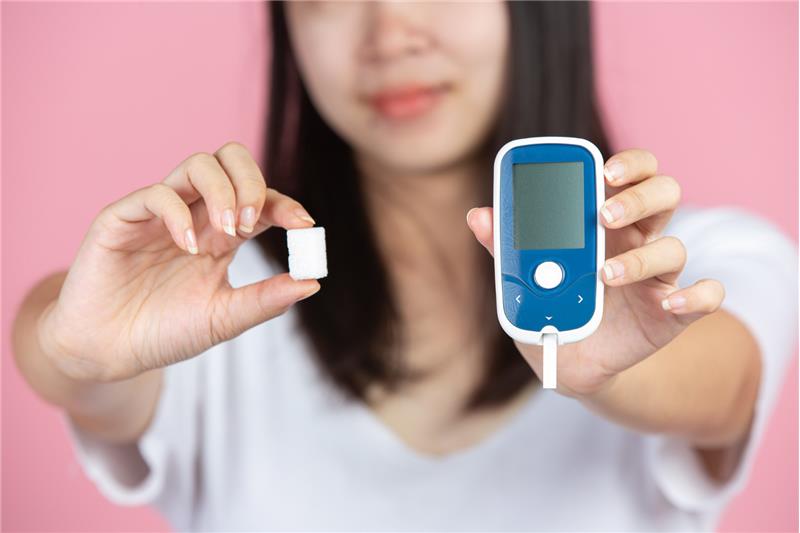Oral And Dental Health In Diabetes
What are the oral and dental problems that can occur in diabetics?
Uncontrolled diabetes negatively affects the oral and dental health as well as organs such as heart, kidney and eyes. Oral and dental problems that can be seen in people with diabetes include:
- Gum disease
- Tooth decay
- Dry mouth
- Fungal infections in the mouth, thrush
High blood sugar level causes thickening and clogging of blood vessels, reducing the oxygen-carrying capacity of the blood, thus affecting the nutrition of tissues. This situation reduces the resistance of the gums to inflammation. Gingivitis causes the gums to separate from the teeth. Small pockets formed between the teeth and gums over time allow the development of new bacteria and this results in tooth loss. During this time, the patient feels pain and wobbling in the teeth, bleeding in the gums and acetone odor in the mouth. At the same time, infections in the mouth make sugar control difficult and this becomes a vicious circle. Advanced gingivitis can only be treated by surgical procedure.
Especially in diabetic patients with uncontrolled blood sugar, the high sugar level in the saliva invites bacteria and cavities easily occur. Tooth decays are perceived as dark discolorations. Although it is a preventable disease, there are very few people in the world who do not experience tooth decay.
Dry mouth is the loss of the effect of saliva washing teeth and facilitating chewing in patients with diabetes, due to the thickening of saliva secretion and decrease in the amount. Low saliva can cause food to stick to the tooth surface and develop plaque, followed by tartar formation. Dry mouth may cause the patient to feel pain, delay the healing of wounds and increase inflammation and loss of teeth as a result. If dry mouth cannot be prevented, the mouth should be rinsed frequently or artificial saliva products recommended by the dentist can be used.
Patients with diabetes are susceptible to fungal infections in the mouth due to sugar in their saliva. This problem manifests itself in cracks and redness at the joints of the lips. Smoking and not removing prostheses from the mouth at night can accelerate fungal growth. Medicines are used in the treatment of fungal infections in the mouth. Care should be taken to clean the prostheses and they must be removed at night.
How can tooth and gum problems be prevented in diabetics?
- In order to prevent gum disease, first of all, a good sugar control and regular oral care are necessary.
- Teeth should be brushed at least 2 times a day for 2 minutes. Due to the consumption of snacks in diabetics, the number of brushing may need to be increased. Soft brush should be used. The top of the tongue should also be brushed.
- Flossing should be used at least once a day to remove bacteria between the teeth. After the procedure, the mouth should be rinsed with water. Dental floss should not be pressed too much on the gum while placing it between the teeth.
- Fluoride and chlorhexidine mouthwash should be used in patients with extensive caries and gum problems.
- In addition to brushing teeth and using dental floss to maintain oral health, it is necessary to undergo a dental check-up every six months.
Does diabetes create an obstacle to dental and gum treatments?
Diabetes itself and the use of insulin do not constitute an obstacle or danger for oral interventions. Likewise, diabetics can easily apply antibiotic treatment if necessary. However, diabetic patients should have their fasting blood sugar levels measured one day before going to the dentist and report this information to the dentist. They should also give correct answers to questions about blood sugar levels. Remember that in uncontrolled diabetes and high blood sugar level, wound healing is delayed and inflammations become more severe. Before any surgical intervention, the patient's blood sugar level is required to be below 180 mg / dl. In patients with blood sugar levels above 180 mg / dl, only urgent infection interventions can be performed as the further infection raises blood sugar even more.
After a surgical intervention in the mouth, drug therapy should be continued for 24-48 hours. If there is a problem in the mouth or a large number of decayed teeth, problems should be tackled immediately as this may cause an infection and increase blood sugar.
Dental and gum treatment is a stressful issue for patients. Therefore, pain relievers and sedatives may be beneficial before and after the operation. It is important for such patients to have their procedures performed under local anesthesia in the early morning hours. The treatment should not interfere with the patient's diet and medication usage hours. In some extensive surgical interventions, changes can be made both in the nutrition and the dosage of the drugs by consulting with the patient's physician. If necessary, dental treatment can be performed under general anesthesia.
If you have encountered any of the following situations, contact your dentist immediately.
• Gingival bleeding during brushing or eating
• Redness, pain, tenderness, swelling in the gums
• Receding gums
• Dental plaque
• Sensitivity in teeth
• Changes in position and wobbling in the teeth
• Malodour and taste in the mouth
• Tooth decay
* Article is taken from TDB (Turkish Dental Association).

